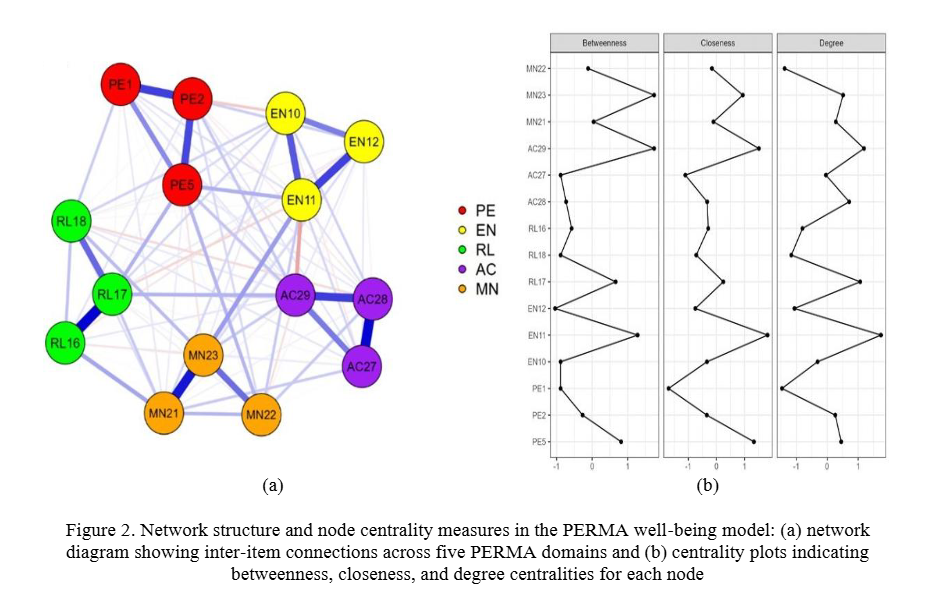Khanitin Jornkokgoud
Lecturer in Psychology at the Department of Educational Psychology and Guidance, Faculty of Education, Mahasarakham University, Thailand.
The PERMA well-being scale assessment in undergraduate students: confirmatory factor analysis and network analysis

The mental health issues among undergraduate students have become increasingly recognized as a pressing concern, often impacting their overall well-being over time. Despite escalating scholarly attention to students’ well-being, a significant gap persists in theoretical frameworks and measurement instruments with established benchmarks, particularly those applicable to the Thai context. This study aims to develop and validate a contextually appropriate well-being instrument for Thai university students, grounded in the PERMA model, which examines five dimensions: positive emotion, engagement, relationships, meaning, and accomplishment. A multistage sampling approach was utilized to enlist 1,080 participants for an online questionnaire incorporating the PERMA well-being scale. The data were examined through confirmatory factor analysis (CFA) and network analysis to assess the structural validity and inter-item correlations. Results from the second-order CFA yielded an excellent model fit with RMSEA = 0.013, with all the constructs significant at p < .001. In addition, network analysis showed centrality within constructs. The findings revealed that the PERMA model was indicative of Thai university students’ well-being, exhibiting robust internal consistency and significant intra-construct correlations. This contextually relevant instrument yielded valuable insights for educators and policymakers in Thailand, providing strategies to evaluate and improve student well-being.